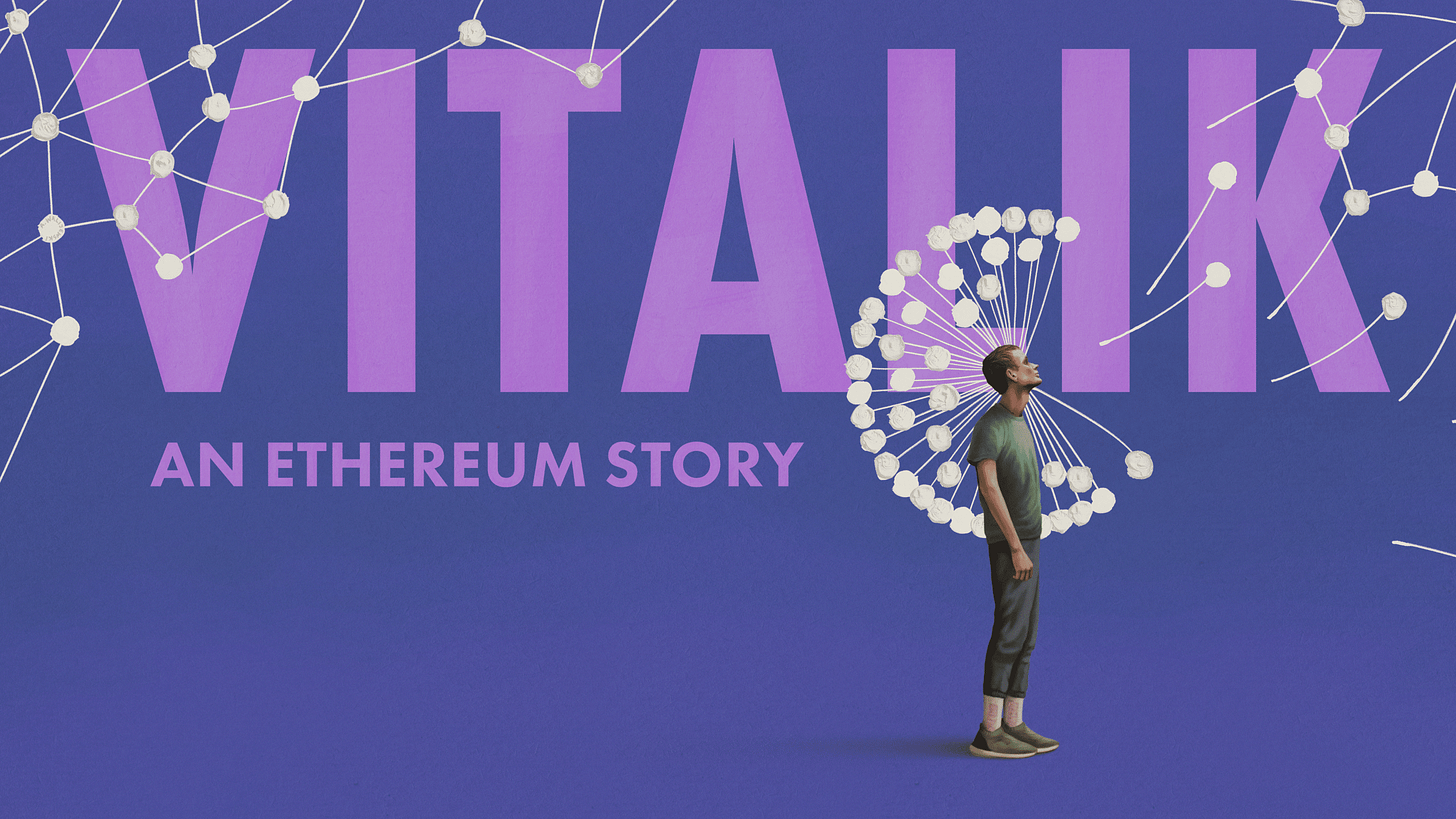🤔 A New Direction? Ro Khanna's Crypto Dialogue With Democrats
Weekly News Recap: 🚀 SEC approves Ether ETFs, 📈 Kraken distributes Mt. Gox Bitcoin, 🎬 Vitalik documentary launch, and more!
You are reading the Unchained Weekly newsletter, where we cover all the major news in the crypto space, providing insights into the market's latest trends, regulatory shifts, and technological advancements. Stay informed with your no-hype resource for all things crypto.
If you like Unchained: Refer us with a friend and earn a Premium subscription!
Why Congressman Ro Khanna Is Hopeful the Democratic Party Will Embrace Crypto
As crypto voters defect from the Democratic Party to support Trump, Rep. Ro Khanna says he is hopeful that his party can “reject the hostile policies of the past.”
The Democratic Party has faced criticism from the crypto industry for its stance on the sector, but House Representative Ro Khanna is determined to change that narrative.
In this episode, he talks about his efforts to shift the party’s approach, his thoughts on the current regulatory environment, and his vision for a crypto-friendly future. He gives his insights on the implications of the Supreme Court’s overturning of the Chevron doctrine, the potential for a crypto bill this year, and his upcoming remarks at the Nashville Bitcoin conference.
Plus, if you are a single-issue voter, he’s got something to say to you.
Listen to the episode on Apple Podcasts, Spotify, Pods, Fountain, Podcast Addict, Pocket Casts, Amazon Music, or on your favorite podcast platform.
Weekly News Recap
SEC Approves Spot Ether ETFs; Trading Begins With High Activity
On Monday, the U.S. Securities and Exchange Commission (SEC) gave its final approval for several spot Ether (ETH) exchange-traded funds (ETFs), setting the stage for their historic launch. This approval comes roughly six months after the SEC greenlit 11 spot Bitcoin ETFs, indicating a significant regulatory shift.
"We are in the midst of a massive, positive regulatory shift," said Matt Hougan, Chief Investment Officer at Bitwise, during a live X Spaces session. Just two months ago, Industry experts had assigned a low probability of such approvals happening.
Trading of the new Ether ETFs began on Tuesday with remarkable activity. The Grayscale Ethereum Trust (ETHE) generated nearly half of the $1 billion total volume. Other notable performers included BlackRock’s iShares Ethereum Trust and the Fidelity Ethereum Fund, which recorded $266 million and $204 million in inflows, respectively.
On the second day of trading, the ETFs generated $937 million in volume, with Grayscale, BlackRock, and Fidelity leading again. However, there were $133.16 million in net outflows on Wednesday.
On a negative note, the market has reacted quite negatively. On Wednesday, the price of ETH fell 8% and at the time of recording, is trading below $3,200. On that day alone, there were $290 million worth of liquidations in the market. The price is now at a level similar to the one before the ETF approval was announced.

The historic launch of spot ETFs in the U.S. coincides with concerns over Ethereum's growing supply. Since April, Ethereum's supply has risen to 120.2 million ETH, its highest level since November 2023, due to reduced ETH burning and declining Layer 1 activity. In the past 30 days alone, the supply increased by 59,312 ETH. This trend challenges the "ultrasound money" narrative, which suggests ETH could be deflationary. Despite this, the amount of staked ETH has reached a record 33.7 million, potentially mitigating selling pressure and supporting ETH prices.
Meanwhile, Hashdex filed an S-1 registration with the SEC for an ETF that will initially hold bitcoin and ether, with the potential to also include other assets, pending regulatory approval.
Kraken Distributes Mt. Gox Bitcoin to Creditors After a Decade
For the first time in ten years, some creditors of the now-defunct Mt. Gox exchange have received their bitcoin and Bitcoin Cash. Crypto exchange Kraken announced on Tuesday that it has "successfully distributed" these digital assets from the Mt. Gox estate.
Kraken CEO Dave Ripley wrote on X that "It’s been nearly a decade since Kraken was selected by the Trustee to facilitate the investigation and return of client funds. It was our privilege and it was our duty."
Something notable about these repayments is that they happened on the same day the Ethereum ETFs were launched in the US. Therefore, the markets saw a bullish event (the ETFs) and a bearish one at roughly the same time.
Ki Young Ju, CEO of analytics firm CryptoQuant, observed on X that there was no significant spike in trading volume or bitcoin outflows from Kraken immediately following the distributions. However, there was an increase in outflows during Asian trading hours.
Bitstamp, another exchange involved in the restitution process, received $340.1 million worth of bitcoin on Wednesday and is set to distribute more funds to creditors.
The distribution marks a significant step in concluding the lengthy Mt. Gox saga, which began with the exchange's collapse in 2014.
In related news, a wallet associated with the US government transferred nearly $4 million in bitcoin, seized from Silk Road vendor Ryan Farace, to the crypto exchange Coinbase, likely indicating its intent to sell.
Supporters Can Mint Vitalik Documentary Trailer to Fund Release
On Tuesday, the onchain minting of the trailer for the documentary "Vitalik: An Ethereum Story" went live, inviting crypto enthusiasts to fund the decentralized release of the film in theaters and on streaming platforms. The documentary chronicles the last three years of Ethereum through the eyes of its co-founder, Vitalik Buterin, focusing on pivotal moments like the Merge, which transitioned the network from proof-of-work to proof-of-stake.
The film, part of the Ethereum Stories series, highlights significant events in the crypto space, such as the creation of GitcoinDAO and ConstitutionDAO's bid to acquire a copy of the U.S. Constitution. "What I hope is that this is the perfect time to be telling stories that are human in the space, because there’s this big, global spotlight on Ethereum," said director Zach Ingrasci.
The documentary's world premiere is set for September 18. Ingrasci emphasized the unique funding model, stating, "With the mint of this trailer, we can actually power the distribution of this film and series. That’s so unique to the crypto space."
The project has already raised over 1,036 ETH (around $3.2 million) through a crowdfund, supported by more than 660 contributors.
dYdX Considers Selling Derivatives Trading Software
Decentralized finance platform dYdX is negotiating the sale of its dYdX v3 derivatives trading software to a group of prominent crypto market makers, including Wintermute and Selini Capital, according to a Bloomberg report. The deal, advised by Perella Weinberg Partners, aims to transfer the software for an undisclosed amount, according to sources familiar with the matter.
Launched in 2017, dYdX allows users to trade perpetual futures contracts for various cryptocurrencies. The platform transitioned to its own blockchain with the v4 software last year, though the v3 version remains popular due to its high liquidity and low slippage for large transactions.

Shortly after the news broke, dYdX reported a security breach on its v3 website, advising users to avoid clicking on any links until further notice. This incident does not affect the v4 platform. Hours later, the team noted on X that the issue was resolved.
Swan Bitcoin Cancels IPO Plans
Swan Bitcoin has scrapped its plans to go public and is shutting down its managed mining division, leading to layoffs in various departments. CEO Cory Klippsten announced that due to the lack of expected revenue from the mining unit, the company had to abandon its IPO. He noted on X that "Swan is scaling back its spending on core financial services, which regrettably includes staff reductions."
Despite these hurdles, other mining companies such as Genesis Digital Assets and Northern Data are still aiming to go public.
Previously, Swan's mining unit operated with 160 megawatts of computing power and secured over $100 million from institutional investors, including stablecoin issuer Tether. Now, the firm will concentrate on offering bitcoin-related financial services and educational resources.

BlockFi Finalizes FTX Creditor Distributions
Defunct crypto lender BlockFi has completed the sale of its FTX claims, significantly exceeding their face value. This transaction finalized with an undisclosed third party, will facilitate the final distribution of 100% of eligible customer and general unsecured creditor claims in fiat terms.
BlockFi plan administrator Mohsin Y. Meghji reported the sale to the U.S. Bankruptcy Court, noting that the sale process, which began on June 24 concluded on July 10 with the best possible bid. The substantial recovery from the sale enables BlockFi to wind down its operations and distribute funds to creditors sooner than anticipated.
The final distributions will commence very soon, with fiat claims managed by Kroll and Digital Disbursements, and in-kind crypto distributions to be processed via Coinbase.

Jito Unveils Open-Source Restaking Service for Solana
On Thursday, the Jito Foundation released an open-source codebase for staking and restaking on the Solana network. This service, the first of its kind for Solana, allows any protocol to use different assets for economic security.
Restaking enables blockchain networks to leverage the value of staked assets as collateral in order to maintain network integrity. Jito's new code aims to facilitate this for any Solana-based application, termed as "actively validated service" (AVS). Unlike EigenLayer's Ethereum-based restaking, which limits collateral to ETH and certain derivatives, Jito's code permits using any crypto asset to secure AVSs.
AAVE Token Jumps on Proposal for New Tokenomics
The price of AAVE, the governance token for the largest decentralized finance lending protocol, surged 10% on Thursday following a new governance proposal aimed at updating its tokenomics, and hitting a two-year high in the amount borrowed.
The proposal suggests a roadmap for implementing a fee switch for staked AAVE, turning it into a “liquidity sink” to collect rewards from protocol revenue. If approved, the new "Buy & Distribute" program will purchase AAVE from secondary markets to distribute to the ecosystem reserve, creating consistent demand for AAVE assets.
The proposal will be open for community feedback before moving to a snapshot vote.







